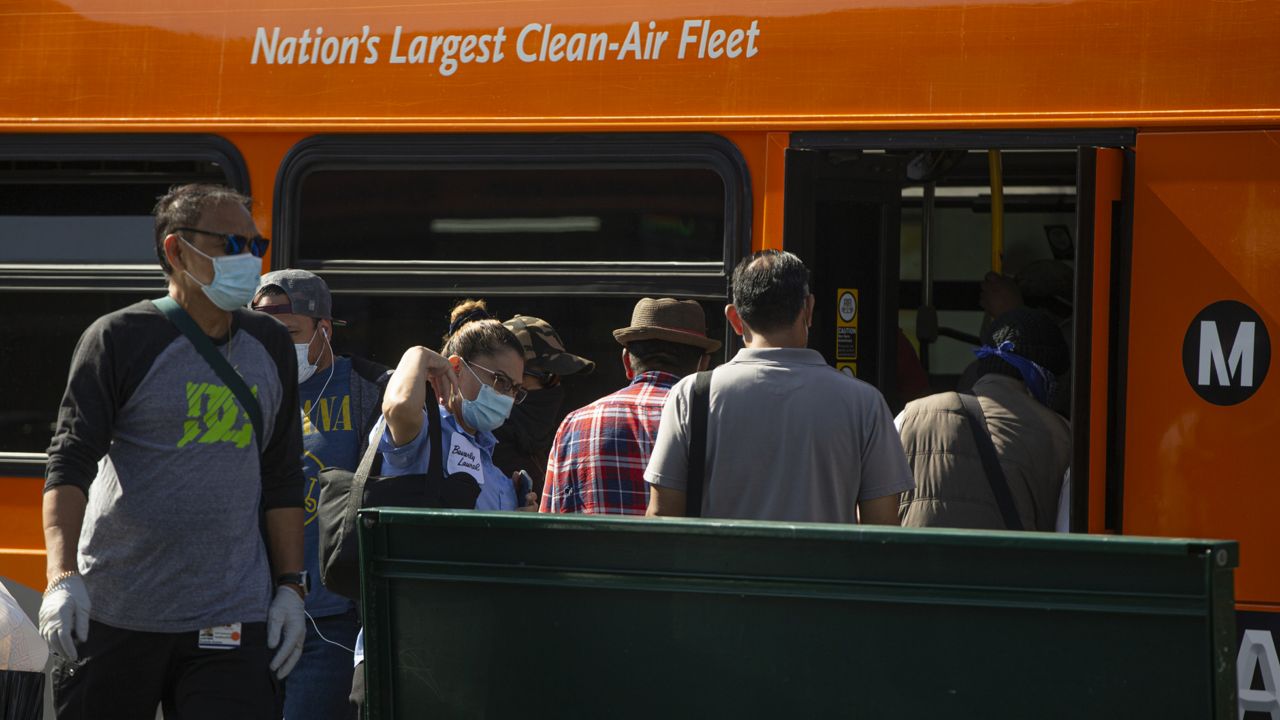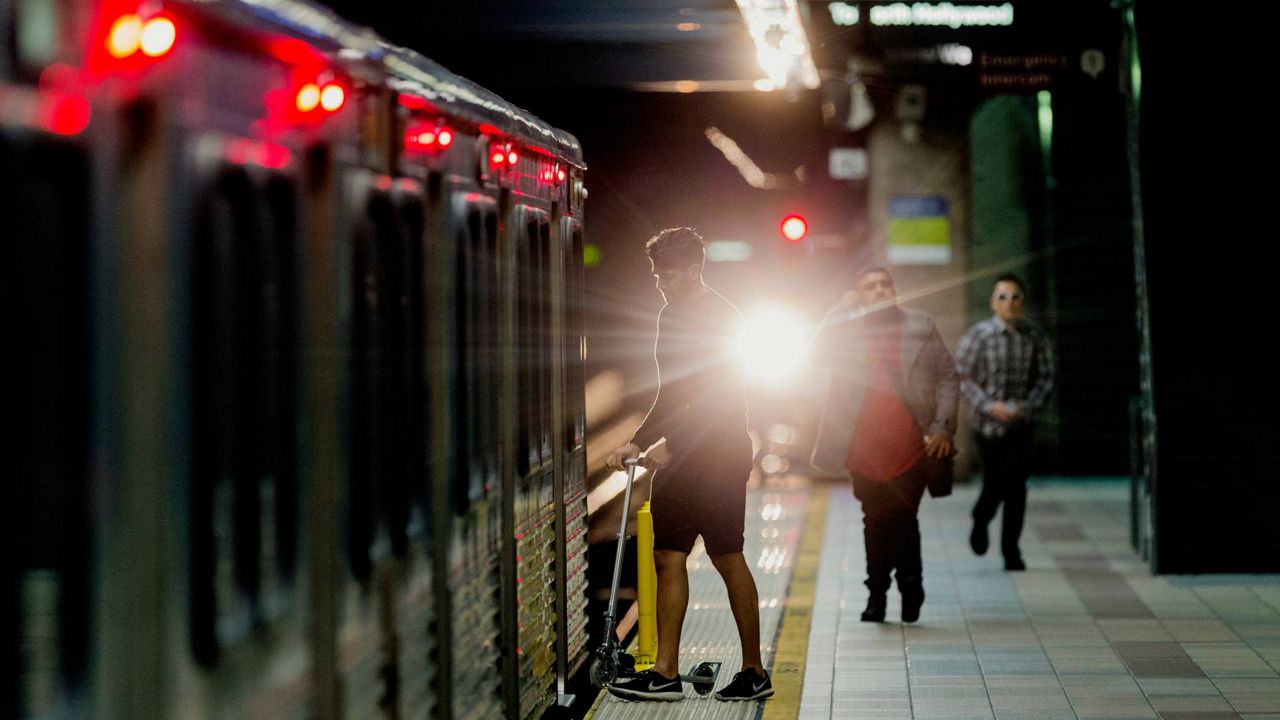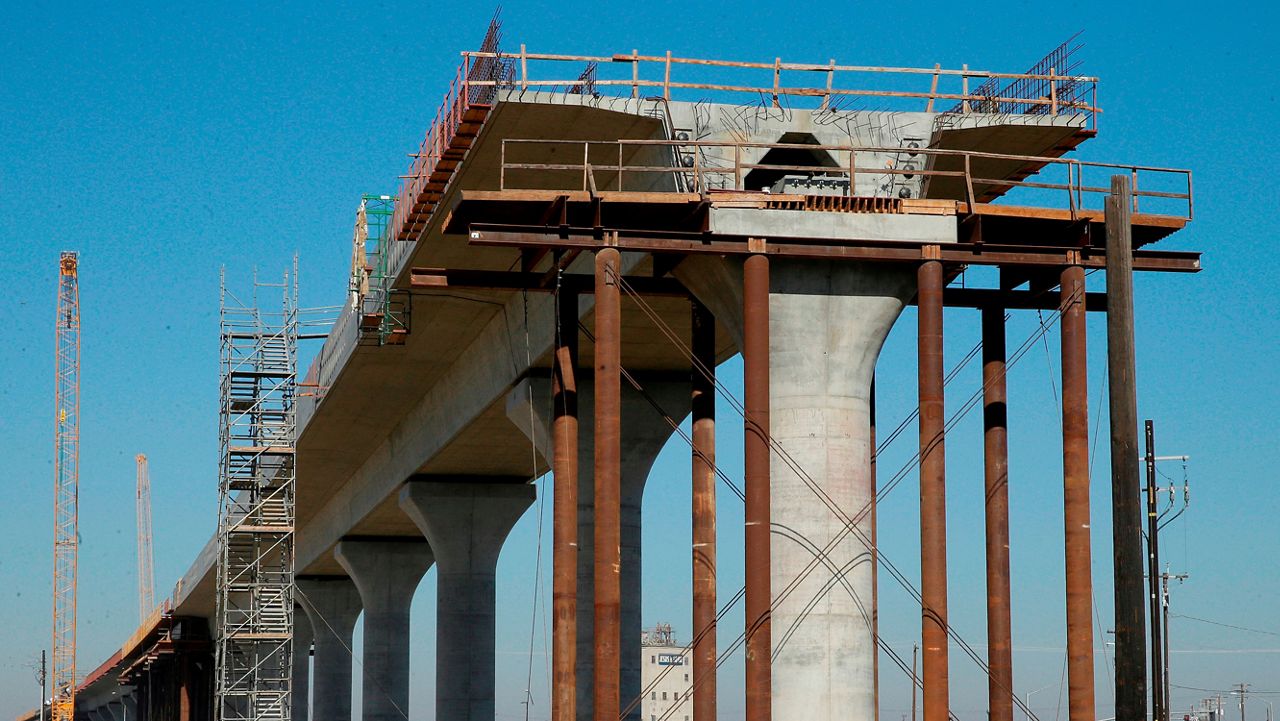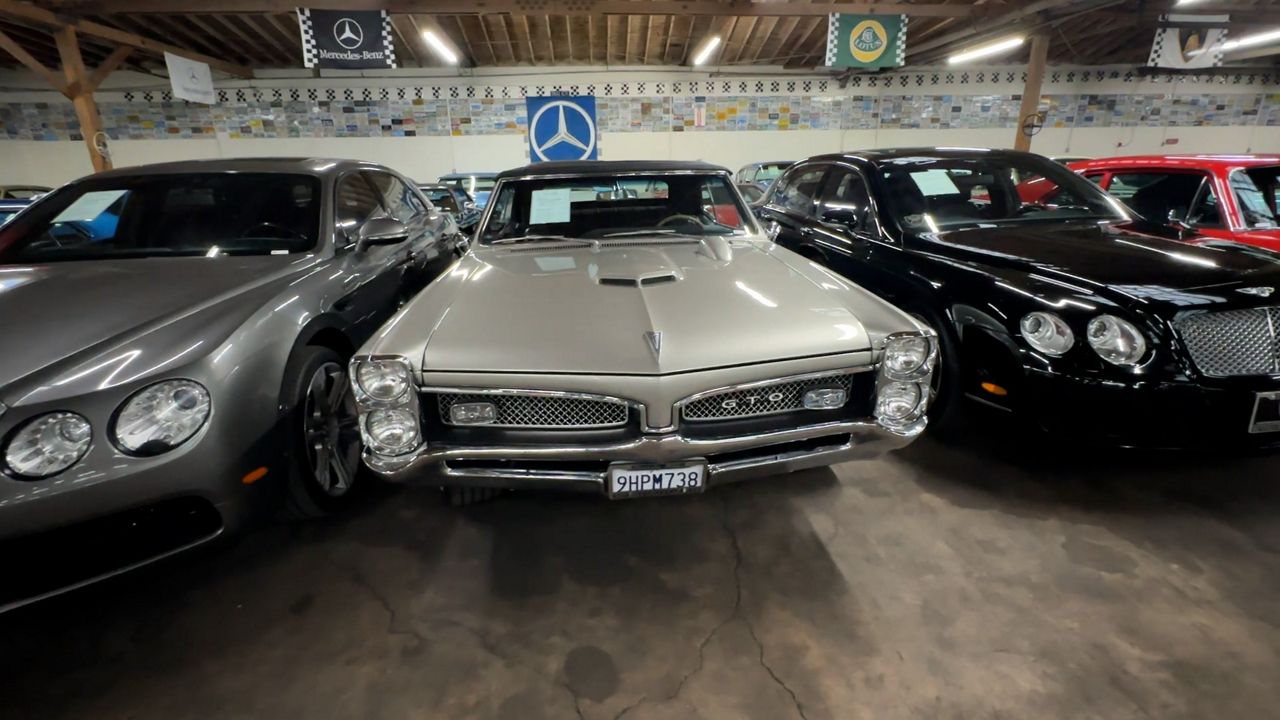LOS ANGELES (CNS) — All buses along the Metro G (Orange) Line are now electric following an $80 million electrification process that began in 2016, officials announced Wednesday.
The buses were previously powered by natural gas, and the G Line is the first Metro line to be transitioned to 100% electric buses.
"Transportation is not just the largest source of air pollution in our state — it's one of our greatest opportunities to realize our vision of cleaner air, lower emissions, and healthier communities," said Mayor Eric Garcetti, who also serves on the Metro Board of Directors. "If we're going to act this decade to save our planet, we need to see solutions on our streets today — and watching these zero-emission buses roll down our roads brings us one step closer to turning the tides of the climate crisis."
The first zero-emission bus on the line, which runs from North Hollywood to Chatsworth, was deployed in July 2020, and by this summer the bus line reached 100% zero emission operations. Each of the 40 electric, 60-foot buses cost $1.15 million and was manufactured by New Flyer.
Officials say the buses provide "a whisper-quiet ride," and passengers can use public Wi-Fi and USB ports embedded in the seats.
"Five years ago, the Metro Board supported my motion for a plan to use electric buses on the Orange Line," City Councilman and Metro Board Member Paul Krekorian said. "At that time, there were still many questions about the feasibility of electrification of the fleet. The success of the transformation of the Orange Line has answered those questions. This important moment in the history of Metro brings us that much closer to achieving our goal of a 100% zero emission fleet by 2030."
The buses are rapidly charged en-route at stations in North Hollywood, Canoga and Chatsworth, allowing them to operate all day along the 18-mile corridor. A full charge provides a 150-mile range.
The electrification process' $80 million price tag included deployment of the buses, charging equipment costs and other infrastructure adaptations.
The Metro Board in June approved $50 million to provide a charging infrastructure program for the J (Silver) Line as a step toward converting that line to zero-emission within two years. The transit authority hopes to transition to 100% electric buses by 2030.
"Today we are working tirelessly to create a more environmentally sustainable, equitable and resilient public transportation system for all our customers," Metro CEO Stephanie Wiggins said.
"Our zero-emission bus goals are an important part of our overall strategy to reduce our agency's carbon footprint and become carbon neutral. We continue as a transit leader in our march towards a more sustainable and resilient transportation system that will benefit our customers, our industry, and our planet," she added.










